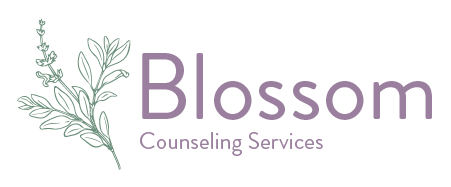Embarking on the journey toward sobriety is a brave and life-changing decision.
However, maintaining that commitment to recovery is often one of the biggest challenges individuals face.
It’s not as easy as “just stopping”.
Whether you’re just starting your path to sobriety or have been working on it for years, therapy for addiction recovery can be an essential part of your support system.
Therapy helps you navigate the complex emotions, triggers, and behaviors associated with addiction while providing the tools and strategies necessary to stay sober in the long term.
Sobriety isn’t just about abstaining from a substance—it’s about creating a healthier, more balanced life.
Therapy helps you achieve this by addressing the root causes of addiction, promoting emotional well-being, and building resilience.
In this article, we’ll explore how therapy plays a pivotal role in addiction recovery, the different types of therapy available, and how it helps people maintain sobriety for the long haul.
By the end, you’ll understand why therapy for addiction recovery is one of the most powerful tools in overcoming addiction.
Why Therapy Is Crucial for Addiction Recovery
Addiction affects both the mind and body, and while detox and medical treatments can help address the physical side of addiction, therapy is essential for healing the psychological and emotional aspects.
- Uncovering the Root Causes of Addiction:
Therapy helps individuals explore the underlying issues that may have contributed to their addiction in the first place.
Trauma, mental health conditions, family dynamics, and past experiences can all play a role in substance use disorders. Through therapy, people can gain insight into these factors and begin to address them in a healthy and productive way.
- Managing Triggers and Cravings:
Sobriety often comes with its own set of challenges, including cravings and triggers that can lead to relapse. Therapy for addiction recovery teaches coping mechanisms to manage these temptations.
Whether through cognitive behavioral techniques, mindfulness practices, or learning to reframe negative thoughts, therapy equips individuals with strategies to stay strong when faced with triggers.
- Emotional Healing:
Addiction can often mask or numb deeper emotional pain.
When someone becomes sober, those emotions resurface, which can be overwhelming. Therapy provides a safe space to process and heal from past emotional wounds, allowing individuals to navigate their feelings in a healthier way without turning to substances.
- Building a Support System:
Therapy for addiction recovery also helps foster connections.
Group therapy, in particular, can create a sense of community among individuals who understand each other’s struggles. Feeling supported, heard, and validated is crucial during recovery. Many people find strength in the stories and experiences of others walking the same path.
- Promoting Long-Term Sobriety:
The skills learned in therapy don’t just help in the immediate aftermath of quitting a substance—they are lifelong tools that support long-term recovery.
Therapy can help people rebuild their self-esteem, develop better communication skills, and create healthier relationships—all of which contribute to a fulfilling and sober life.
Types of Therapy for Addiction Recovery
There are various therapeutic approaches that can be used in addiction recovery, and each person’s journey may require a unique combination of treatments.
Below are some of the most common types of therapy for addiction recovery:
- Cognitive Behavioral Therapy (CBT):
CBT is one of the most widely used forms of therapy for addiction recovery. It focuses on identifying and changing negative thought patterns and behaviors that contribute to addiction. By reframing thoughts and developing healthier coping strategies, individuals can better manage triggers and avoid relapse.
- Dialectical Behavior Therapy (DBT):
DBT is a form of CBT but with an emphasis on managing intense emotions and building emotional resilience. It’s especially helpful for individuals who struggle with co-occurring mental health disorders such as depression, anxiety, or borderline personality disorder alongside addiction.
- Motivational Interviewing (MI):
Motivational Interviewing helps individuals find their internal motivation for change. It focuses on exploring and resolving any ambivalence they may have toward sobriety, empowering them to make positive decisions for their future.
- Group Therapy:
Group therapy is a powerful way to connect with others who are going through similar struggles. Sharing experiences in a group setting provides a sense of camaraderie and reduces feelings of isolation. It also offers the chance to learn from others’ successes and setbacks in recovery.
- Family Therapy:
Addiction doesn’t just affect the individual—it impacts the entire family unit. Family therapy helps repair relationships, improve communication, and create a supportive environment that fosters recovery. It allows both the individual and their loved ones to heal together.
- Holistic Therapies:
Holistic approaches like art therapy, music therapy, and mindfulness practices such as yoga and meditation can also be integrated into addiction recovery. These therapies allow individuals to express themselves in new ways, release pent-up emotions, and find peace and balance.
How Therapy Can Help Maintain Sobriety
Once someone achieves sobriety, maintaining it becomes the next focus. Therapy plays a critical role in sustaining long-term recovery.
Here are some of the ways therapy helps maintain sobriety over time:
- Preventing Relapse:
Therapy helps individuals understand the warning signs of relapse and equips them with tools to prevent it. This could include identifying emotional triggers, creating action plans for stressful situations, or learning new ways to handle difficult emotions. The ongoing support of therapy also ensures that people stay accountable to their recovery goals.
- Developing New Coping Mechanisms:
Many individuals turn to substances as a way to cope with stress, anxiety, or difficult emotions. Therapy provides new, healthier coping mechanisms to replace substance use. These can include mindfulness techniques, stress-relief strategies, and self-care routines that help manage life’s challenges in a positive way.
- Rebuilding Relationships:
Addiction often damages relationships with family, friends, and even oneself. Therapy helps individuals repair these relationships, offering a space to rebuild trust, improve communication, and create healthier connections. A strong support network is key to maintaining sobriety.
- Finding Purpose and Meaning:
Sobriety is about more than just avoiding substances—it’s about creating a life that feels meaningful and fulfilling. Therapy for addiction recovery helps individuals explore their values, goals, and passions, giving them a sense of purpose that can motivate them to stay sober.
- Ongoing Self-Reflection:
Recovery is a lifelong journey, and therapy offers the opportunity for continual self-reflection and growth. By regularly checking in with themselves through therapy, individuals can stay attuned to their mental and emotional health, making adjustments as needed to maintain their sobriety.
The Importance of Therapy for Addiction Recovery
Therapy is not just a step in the recovery process—it’s a cornerstone of maintaining sobriety.
Addiction affects every aspect of life, from emotional well-being to relationships, and therapy provides a comprehensive approach to healing all these areas.
Whether through individual therapy, group therapy, or a combination of approaches, therapy helps people stay grounded in their sobriety journey.
The power of therapy lies in its ability to help individuals build a new life for themselves, one that is healthier, more connected, and more fulfilling.
Therapy for addiction recovery doesn’t just focus on quitting a substance—it focuses on helping people thrive.
FAQs About Therapy for Addiction Recovery
- What kind of therapy is used for addiction?
Several types of therapy are used for addiction, including Cognitive Behavioral Therapy (CBT), Dialectical Behavior Therapy (DBT), Motivational Interviewing (MI), group therapy, and family therapy.
Holistic therapies like mindfulness practices and art therapy can also be integrated into treatment plans.
- What treatment is best for addiction?
The best treatment for addiction varies depending on the individual’s needs.
A combination of therapy, medical treatment, and support groups often proves most effective. Therapy helps address the emotional and psychological aspects of addiction, while medical treatment and support networks provide additional layers of support.
- What are the five recovery skills?
The five key recovery skills include:
- Managing triggers and cravings
- Building emotional resilience
- Developing healthy coping mechanisms
- Establishing a strong support system
- Practicing self-reflection and mindfulness
These skills help individuals stay on track with their recovery and maintain sobriety.
- What are the 3 R’s from addiction to recovery?
The 3 R’s from addiction to recovery are:
- Recognize: Acknowledging the addiction and understanding its impact
- Repair: Healing relationships and addressing the underlying issues that contribute to addiction
- Rebuild: Creating a new, healthier life that supports long-term sobriety
Therapy for addiction recovery is a powerful tool that helps people not only achieve sobriety but maintain it for the long term. It really can empower you to reclaim your life, heal from your past, and create a brighter, healthier future for yourself and your loved ones.
Get Started
You may call, text message, email, or fill out the form to reach us. We will respond within 48 hours, Monday through Friday.
We Will Help You Find Your Fit
We know that looking for a counselor can feel overwhelming.
We are here to help guide you to the counselor that is best for your needs. If that counselor turns out to
not be in our practice, that's okay. We know great counselors that we'd be happy to refer you to.
What’s most important to us is that you get connected with the help you need. We are here for you.

